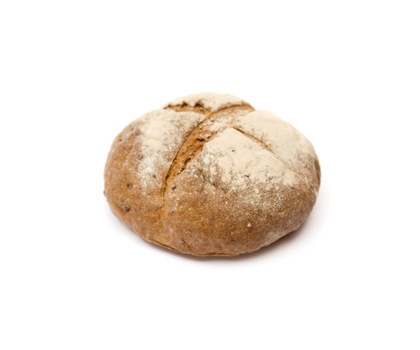Sourdough
Definition
Sourdough is a bread made with the use of a sourdough starter. The starter is a culture of lactic acid bacteria and yeast mixed with flour and water and allowed to ferment for days, at least. Some sourdough starters are decades old, with the flour and water being refreshed regularly and the unique bacterial and yeast culture imparting a distinct flavor. Sourdough breads have a characteristic sour, tangy flavour due to lactic acid produced by the starter.
Health considerations
The acidic nature of sourdough breads along with the activity of the bacterial culture can result in breakdown of proteins in the flour and weaker gluten. Some wheat-sensitive individuals find sourdough breads tolerable.
Keep in mind
True sourdoughs have become less common with mass production due to the increased time requirement. Bakers may make use of unbleached, unbromated flour, unchlorinated water, and wholegrain flours as these encourage a stable sourdough starter.
May be found in
Sourdough bread, pumpernickel, sourdough rye, brioche, panettone, pandoro
References
Applied and Environmental Microbiology
On Food and Cooking: The Science and Lore of the Kitchen


